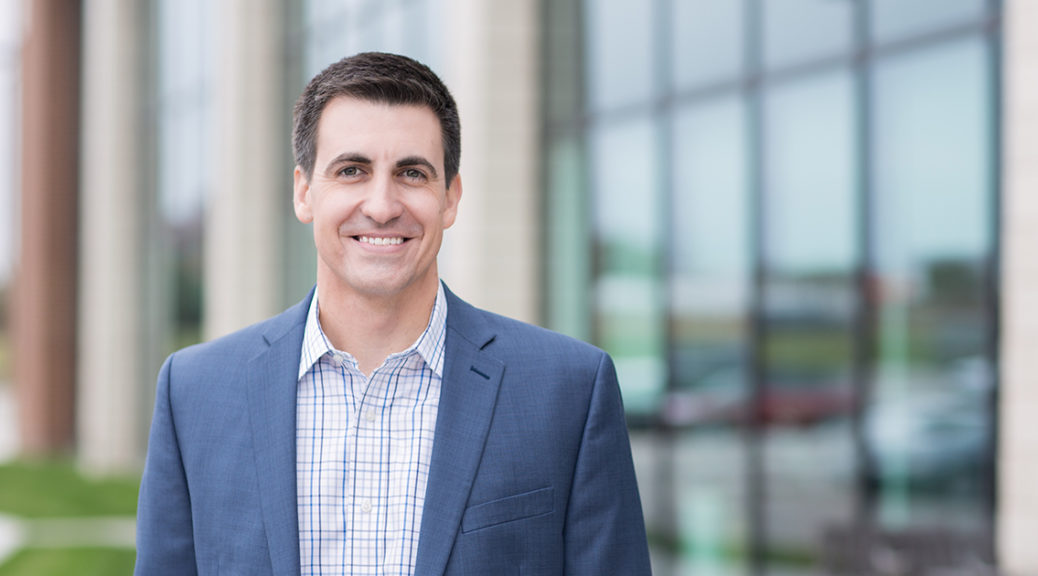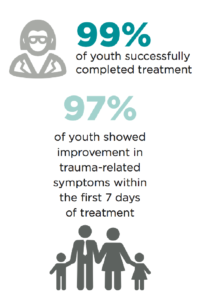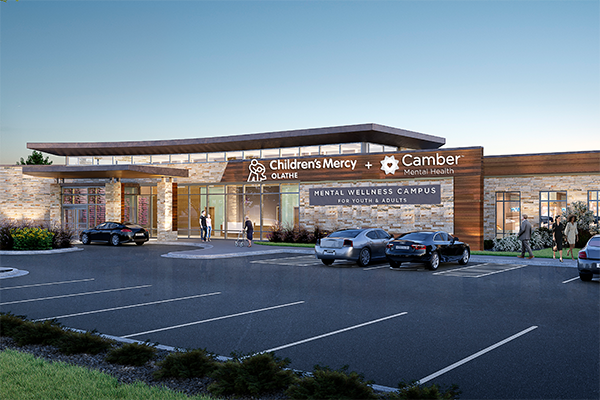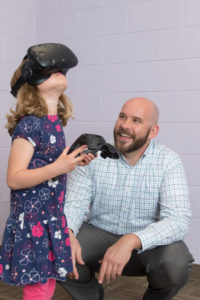Driven to Serve: An Interview with the President of KVC Hospitals

A man in a shopping mall walks toward a department store. His head is up, shoulders back and eyes pointed straight at the store. As a child, Ryan Speier of KVC Hospitals would sit in the mall with his father and guess the details of who this man was, along with the identities and life stories of all the other people they saw that day. Was he an office worker buying a gift for his daughter or a lawyer who needs to get a new wallet? It was a game they played together. They guessed who people were, what jobs they had, and what their personalities were like by watching their behaviors.
This is where Ryan started to develop an interest in understanding people. He also learned to help people early on. His mother worked as a nurse, his father worked as a psychologist and both taught their children how important it is to help people.
Learn about 3 types of mental health treatment for children and teens.
“I enjoy understanding the brain and why people think the way they think and act the way they do when reacting to situations,” said Speier. “To understand the brain and bring that to the helping side is so interesting. It was a passion for me early on to see how my father helped change people’s lives. He and my mother helped people from all walks of life. It didn’t matter who you were or what your look was, they saw people as people and helped everyone.”
Understanding people and a having a drive to serve helps Speier now as he leads a team of nearly 400 people who help youth and adults at KVC Hospitals, a network of children’s psychiatric hospitals which recently expanded to provide adult psychiatric treatment as well. The teams at KVC Prairie Ridge Hospital in Kansas City, Kansas and KVC Wheatland Hospital in Western Kansas (Hays) help children, teens, and adults who are struggling with depression, anxiety, thoughts of self-harm, the effects of trauma, and other mental and behavioral health challenges.
We joined him for a conversation about how KVC Hospitals is helping people and what’s to come.
Few people know what a children’s psychiatric hospital is actually like. Can you explain how you help children and teens?
Our hospitals create a healing environment; a safe place for people who are going through the worst time in their lives. Our employees are wonderful. They are so passionate and giving to those we serve. I have to give a big thank you to our employees because they do such important work and commit to a high level of care and treatment that they give each of our clients.
With everyone who walks through our doors, we want to help them see that there are different ways to look at life. We show them there are different opportunities and there are people who feel the way they feel so they are not alone. We give them a tool belt full of skills so they can lead healthy lives in their communities.
In our Resilience Center, we are teaching kids about brain development and the science behind it; what is going on in their brain when they’re beginning to get angry or scared or sad. We’re teaching coping skills and using virtual reality to help connect with them in new and exciting ways. Our treatment is trauma-informed which helps to treat the individual and their experiences but also includes their family and home environment on how to help.
 Your treatment data shows a high success rate. What do those numbers mean to you?
Your treatment data shows a high success rate. What do those numbers mean to you?
We see 99 percent of youth successfully completing treatment during a typical stay. We have the experts and capacity to help children and families in crisis and help them immediately. To that point, we do have 100 percent success with treatment, but some youth need a little more time and don’t fall into that data window of a typical treatment stay. We’re talking about people’s lives here so we have to have 100 percent all the time. I’m proud of our outcomes, and I want to continue providing the best care for our clients.
What are some of the greatest challenges KVC Hospitals is facing right now and how is it addressing them?
Our greatest goal is to close our doors because everyone would be healthy and there wouldn’t be a need for psychiatric care. But, we do exist because there is a need. Unfortunately, there is a high level of need for our services right now. The number of children and teens admitted to a psychiatric hospital for suicidal thoughts or actions has doubled over the past decade. We need more treatment spaces, Resilience Centers, Learning Labs, and space for expressive therapies. The more space we have for treatment opportunities, the better we can serve our clients. Our opportunity to collaborate with community partners can allow for more treatment spaces and greater reach to those in need.
We also have a challenge with people thinking that mental health is something you don’t have to take care of regularly. It is. Mental and behavioral health needs to be treated the same as physical health. As the world starts to understand that medical care includes mental health and behavioral health and that it’s all one ‘health issue’, then we are all going to be that much healthier as an individual and community. Every individual experiences health issues. Communities will change when we all start looking in that direction. We’ll have healthier children, healthier adults, healthier families creating healthier homes, healthier schools, and ultimately healthier communities.
To help communities, we’re planning to develop Resilience Centers and Learning Lab components in community facilities. We’re having great conversations with healthcare organizations, universities, and schools to put psychiatric treatment components in non-psychiatric care facilities. Our hope is to prevent the need for people to come to a psychiatric hospital.
What do you hope KVC Hospitals achieves in the next year?
In the next year, we hope to continue to extend our reach and help more people. There are communities that need our level of care and we’d like to work together to get services into those areas. We also want to hire more amazing individuals who want to be active in helping children, adults, and families achieve a higher level of health. We want more people to understand how KVC can benefit families and impact communities for the better.
What do you want people to understand about mental and behavioral healthcare?
For the population of youth we get to work with, I would like people to understand that there are not inherently bad kids. If we recognize that it’s not the kids’ fault that something traumatizing has occurred in their life, then we’re going to help those kids get better with the understanding that it is a brain problem, not a behavior problem. That’s how we’re training our employees and that’s how we’re treating the youth in our care. Children and teens come to our psychiatric hospital because they are in crisis, and we have to help them work through the trauma they have experienced in their lives and have hope about achieving a better tomorrow.
How can people get involved in the great work done at KVC Hospitals?
Anyone can get involved with us. We’re looking for energetic employees to help the people we serve. We’re looking for community partners we can work with to help get our expertise into new neighborhoods and we’re looking for donors so we can better assist in areas that need our services. We’re all working to put a smile on a kid’s face and I welcome those who want to help us build their resilience and support systems so that they can handle life’s challenges and live healthy, joyful lives.






